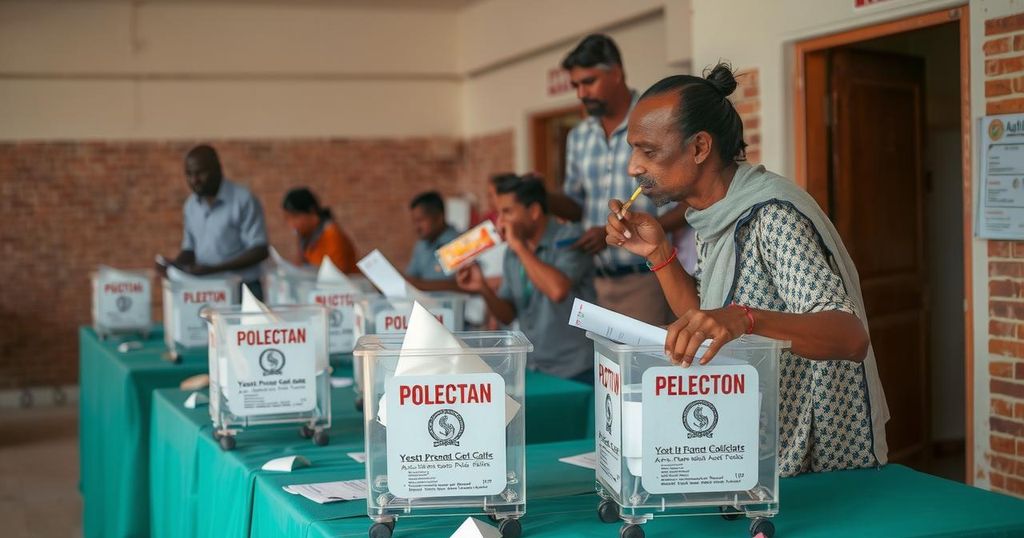Voting Underway in Chad’s Contentious Parliamentary Election

Chad is conducting its first parliamentary election in 13 years amidst controversy, with the opposition calling for a boycott, claiming predetermined results favoring President Déby. Despite official claims of high voter turnout, criticism and allegations of fraud overshadow the electoral process, against a backdrop of ongoing regional instability.
Voting has commenced in Chad’s first parliamentary election in over a decade, an event positioned by the current government as a crucial move towards relinquishing military governance. As voters engage in the electoral process, they are tasked with selecting representatives for a new parliament, provincial assemblies, and local councils in this economically challenged nation. The opposition, however, has initiated a boycott, claiming that the election’s outcomes have already been predetermined.
In many polling stations, particularly in N’Djamena, voter turnout was disappointingly low. Election officials attributed this apathy to colder weather conditions. Opposing political groups have conclusively urged the electorate—approximately eight million citizens—to abstain from participating in an election they deem illegitimate, which they assert has been orchestrated to favor candidates aligned with President Mahamat Idriss Déby Itno, who ascended to power following a military coup in 2021 and was then elected in a subsequent presidential vote.
President Déby himself implored citizens to participate in what he dubbed a “historic day,” sharing images of his own voting experience on social media. Opposition leader Succes Masra vehemently criticized the state of the elections, stating, “The fabricated results are already in the computers.” Meanwhile, citizens such as Patrice Lumumba Deoumoundou expressed hope for substantial change, seeking improvements in job availability, inflation control, and equality.
Although military personnel, police officers, and nomadic groups participated in voting the prior day, claiming high turnout rates, the legitimacy of these figures remains under scrutiny. Some factions within the opposition reported cases of irregularities, including the alleged disappearance of over 1,000 ballots intended for the Bongor area. The elections are being held amidst ongoing volatility, including threats from Boko Haram and allegations of Chad’s interference in regional conflicts. The government is framing this electoral event as a final stride towards a democratic transition following governing by military decree since 2021.
Chad is a nation grappling with numerous challenges, including economic hardship and political instability. Following the death of long-serving President Idriss Déby in April 2021, the country has seen a shift to military rule under his son, Mahamat Idriss Déby Itno. The current parliamentary election marks a significant political process as it seeks to transition Chad towards democratic governance after 13 years without parliamentary elections. This election is vital not only for local governance but also as a reflection of the military government’s commitment to democratic reform. However, it occurs against a backdrop of opposition discontent and allegations of fraud.
In conclusion, the parliamentary elections in Chad symbolize both an attempt at democratic progression and a contentious political landscape marked by widespread opposition boycott and allegations of electoral manipulation. While the government promotes participation as integral to national development, the low turnout and critical dissent raise questions regarding the legitimacy of the electoral process. The unfolding political scenario necessitates close observation as Chad navigates its complex path towards stability.
Original Source: www.aljazeera.com







